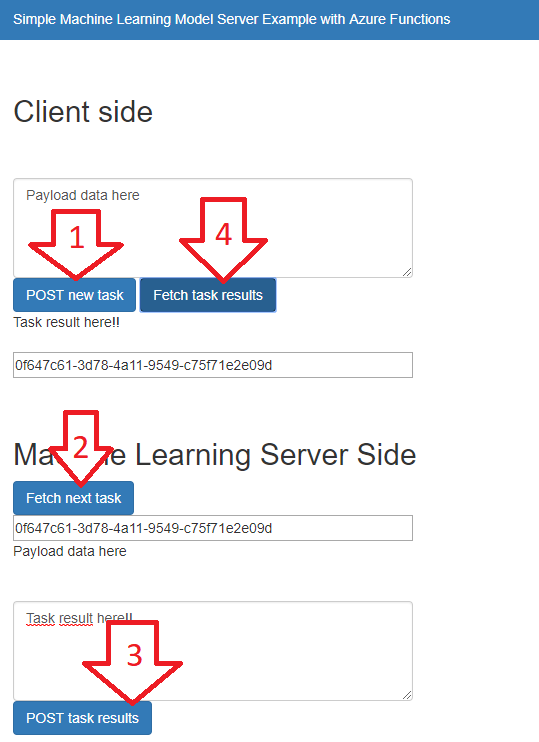

- #Mlserver python jupyter notebook mac os x#
- #Mlserver python jupyter notebook install#
- #Mlserver python jupyter notebook code#
- #Mlserver python jupyter notebook download#
- #Mlserver python jupyter notebook free#
This sounds crazy but hey, 'if it works, its true. MRSDeploy Python API with parameters will not generate in Visual Studio on the Python instance loaded with ML Services. In most cases, necessary packages can be installed during the workshop. The trick is to run in Jupyter Notebook using Anaconda as your Python instance. Workshop repositories may contain additional information on packages that should be installed for the workshop. Colab is a good option if you are having difficulty installing Python, Anaconda, or a required package on your computer.įor the Python Fundamentals workshop, you need to have Anaconda installed on your laptop, but for many of the intermediate and advanced Python workshops, you may use Google Colab. Colab lets you open Jupyter notebooks that are saved on your computer or straight from a GitHub site. Jupyter Notebooks can also be opened on the Google Colab website.
#Mlserver python jupyter notebook install#
To install Jupyter separate from Anaconda, see Installing the Jupyter Software. Jupyter Lab is an Integrated Development Environment (IDE) that can open Jupyter Notebooks as well as other features. If you have the Anaconda distribution of Python installed, you have both Jupyter Notebook and Jupyter Lab installed.

#Mlserver python jupyter notebook code#
Jupyter Notebooks are files that combine code with text and code output, so they are very useful for teaching and research. Many workshops use Jupyter Notebooks to run Python code. We do not use it explicitly in the workshops. When installing Anaconda, you may be asked whether you want to install Visual Studio Code as well. If you already have a different version of Python (for example, 2.7) installed with Anaconda, then installing Python 3 and making it available through Jupyter Notebooks isn’t as simple as installing a new version of Anaconda.
#Mlserver python jupyter notebook download#
If you have never installed Anaconda before, Download Anaconda for Python 3. Our Python Fundamentals workshop uses Jupyter Lab, which comes with the Anaconda distribution. Anaconda includes Python, Jupyter Notebook, Jupyter Lab, and most of the Python packages used in our workshops. We recommend the Anaconda distribution of Python 3. MLServer is integrated with two leading open source model deployment tools, Seldon Core and KServe (formerly known as KFServing), and can be used to test and deploy models using these frameworks.

Python workshops use the current version of Python (currently 3.7 or 3.8). Serving with MLServer (experimental) Python models can be deployed using Seldon’s MLServer as alternative inference server.
#Mlserver python jupyter notebook mac os x#
The version of Python that comes pre-installed with Mac OS X or Linux is not sufficient for the workshops. If you don’t have Python installed, follow the instructions below. See the workshop details for information on additional packages you may need. Many workshops do use Jupyter Notebooks though, so you should be familiar with them (see below). In other cases I would recommend doing so.If you already have Python 3.x installed on your computer, and you’re comfortable managing your installation, installing new packages, and editing files, you don’t need to install a specific version of Python or a specific IDE. The Jupyter Notebook is an open-source web application that allows you to create and share documents that contain live code, equations, visualizations, and narrative text. In this case, the only work around might be restarting the Jupyter process. Even if they are less likely to happen in Python, there are some bug reports for Jupyter. These type of bugs are called memory leak and often occur in server processes running for a long time. In this case you actually might have to shutdown the notebook manually or use some other method to delete the (global) variables.Ī completely different reason for the same kind of problem might be a bug in Jupyter. If you are storing large files in (different) variables over weeks, the data will stay in memory and eventually fill it up.

codefn (function) - A Function to run and evaluate. initstr (str) - A block of python code to initialize service. codestr (str) - A block of python code to run and evaluate. by using del, if the variable is overwritten with something else or if it goes out of scope (a local variable at the end of a function). The MLServer class is for SQL Machine Learning Services and Machine Learning Server for managing web services.
#Mlserver python jupyter notebook free#
Python's garbage collector will free the memory again (in most cases) if it detects that the data is not needed anylonger. If you load a file in a Jupyter notebook and store its content in a variable, the underlying Python process will keep the memory for this data allocated as long as the variable exists and the notebook is running.


 0 kommentar(er)
0 kommentar(er)
